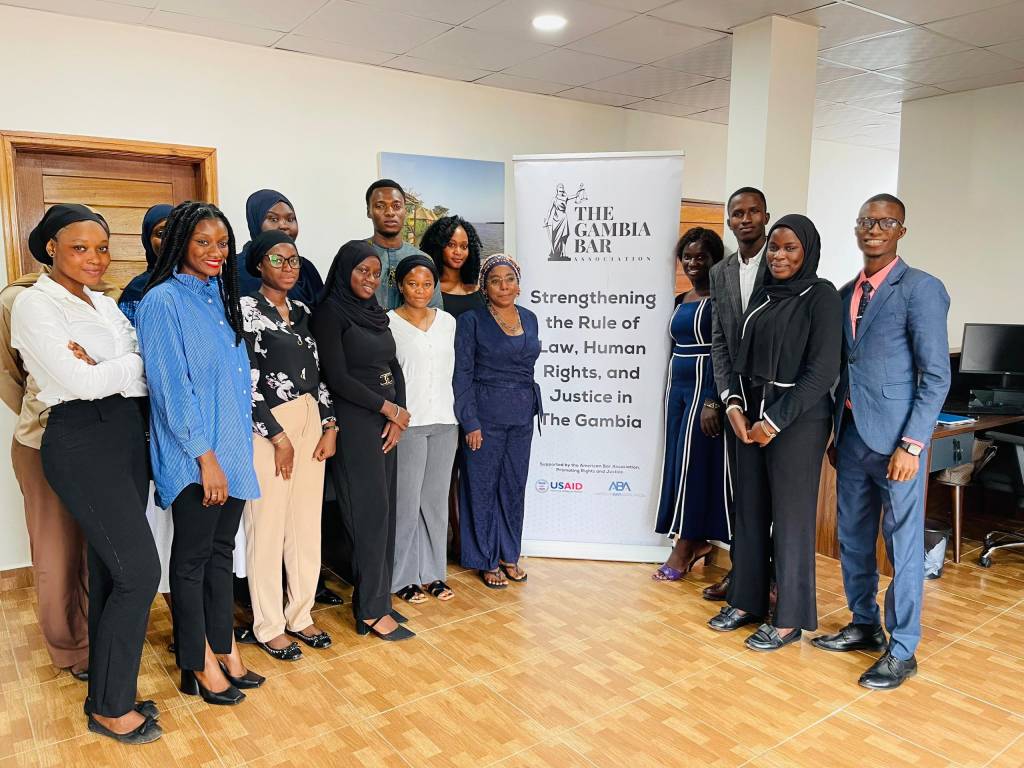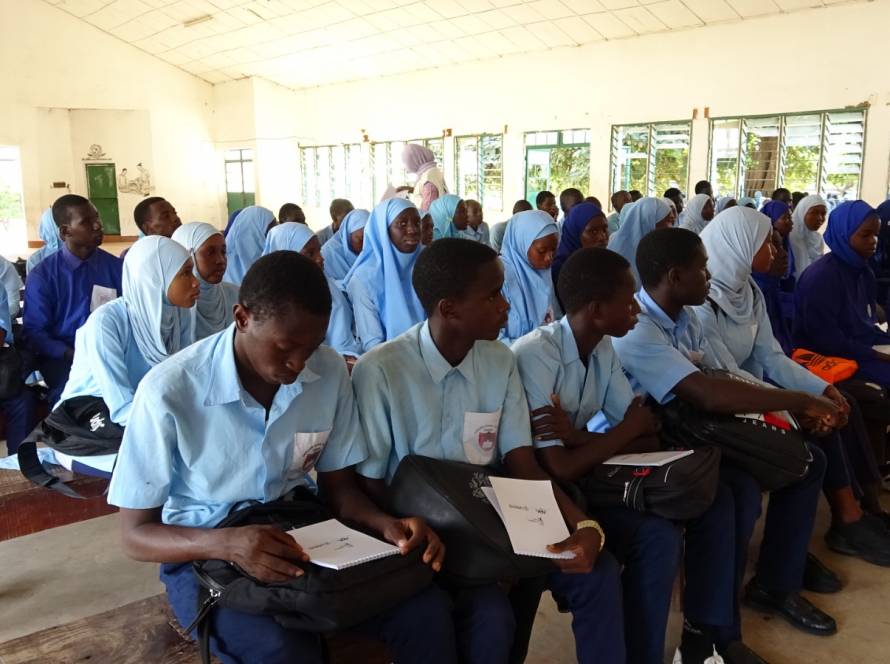On the 20 th of August 2024, The Gambia Bar Association, with support from
Promoting Rights and Justice in the Gambia, conducted a 2-day capacity-building
training for 20 members on human rights. This training aims to enhance the
participants’ understanding of international human rights legal instruments, with a
particular focus on the regional and international human rights mechanisms crucial
to The Gambia’s transitional justice phase.
In her welcome address, the Executive Secretary of the GBA, Ms. Penda Dibba,
emphasized the importance of the training and the need to empower junior lawyers
to lead change within legal sector. She highlighted the various topics that
participants will explore over the two days, including regional and international
instruments to which The Gambia is a party.
Ms. Dibba also provided an overview of the Bar Association’s mission to promote
the rule of law in The Gambia, stating, “The Bar is taking a new direction for
change and visibility. We want to drive a narrative for the future of the country.”
Key sessions covered essential human rights principles, the Bar’s responsibility in
advocating for rights through campaigns and policy recommendations, gender
justice, and addressing gender inequalities in The Gambia. The day concluded with
a discussion on international instruments protecting children’s rights and the state’s
obligations in this area.
On Day 2 of our human rights training kicked off with an in-depth presentation on
the human rights-based approach to addressing the needs and rights of persons
living with disabilities. The session provided a thorough overview of the social
challenges faced by this group and emphasized the state’s obligations to protect and
promote their rights.
Participants engaged in meaningful discussions on the significance of inclusive
policies and the vital role various stakeholders play in ensuring that the rights of
persons with disabilities are respected and upheld across all sectors of society.
The training continued with sessions on human rights litigation, economic rights,
and environmental rights, offering participants a broad perspective on how these
areas intersect with the overall human rights framework.


